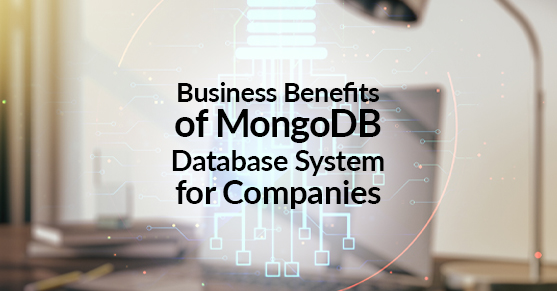MongoDB is a high-performance, document-oriented database system that provides significant benefits for businesses across a wide range of industries. This is a comprehensive analysis of the business benefits of MongoDB.
Use Cases and Industries
MongoDB is widely used and accepted in a variety of niches and industries, including:
- E-commerce – MongoDB’s flexible schema design, scalability, and high performance make it ideal for handling high-velocity data in e-commerce applications.
- Healthcare – MongoDB’s ability to store unstructured data such as medical images and its real-time analytics capabilities make it ideal for healthcare applications.
- Finance – MongoDB’s flexibility and scalability make it ideal for financial services applications such as trading platforms and risk management systems.
Technical Characteristics and Advantages
- Flexible Data Model – MongoDB’s flexible data model allows for quick and easy changes to data structures, making it easy to adapt to changing business needs.
- High Performance – MongoDB’s high-performance architecture can easily handle high-velocity data, providing faster data access and improved query performance.
- Scalability – MongoDB’s distributed database architecture allows for easy horizontal scaling, ensuring that the system can grow with your business needs.
- Real-Time Analytics – MongoDB’s real-time analytics capabilities allow businesses to gain real-time insights into their data, enabling faster decision-making.
Concrete and Measurable Benefits
- Improved Speed – MongoDB’s high-performance architecture and ability to handle high-velocity data can help businesses improve the speed of their data processing, leading to faster insights and better decision-making.
- Increased Scalability – MongoDB’s distributed database architecture allows businesses to easily scale their database to meet growing data volumes, reducing the need for costly hardware upgrades.
- Flexible Data Model – MongoDB’s flexible data model allows businesses to quickly and easily add, modify, or remove data fields without the need for complex migrations, reducing development costs and time to market.
- Real-Time Analytics – MongoDB’s real-time analytics capabilities provide businesses with real-time insights into their data, enabling them to make faster decisions and improve bottom-line results.
Long-Term Implications
Using MongoDB can have significant long-term implications for maintenance costs, security, and future sustainability. Here are some key considerations:
- Maintenance Costs – MongoDB’s flexible data model and scalability can help reduce long-term maintenance costs by reducing the need for complex migrations and costly hardware upgrades.
- Security – MongoDB provides robust security features such as end-to-end encryption, role-based access control, and auditing, ensuring the protection of sensitive data.
- Future Sustainability – MongoDB has a strong community of developers and users who actively contribute to its development and support, ensuring its future sustainability.
Conclusion
MongoDB is a powerful and flexible database system that provides significant benefits for businesses across a wide range of industries. Its high performance, scalability, and real-time analytics capabilities improve businesses’ speed, flexibility, and decision-making. Its flexible data model, robust security features, and strong community make it a reliable and future-proof option for businesses looking for sustainable, cost-effective solutions.
For more information on MongoDB Remote DBA Services, please contact us.

